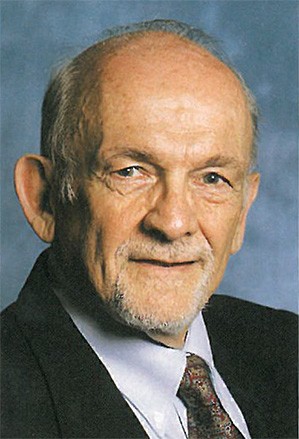
In 1999, the Department of Sociology hosted "Zaldfest," a two day conference in tribute to the career of Mayer Zald, professor of sociology, social work and business administration. The conference highlighted Zald's contributions to the sociology of organizations, social movements and several other subjects. He is a scholar and leader who had made important contributions to the School of Social Work with his interdisciplinary research.
Zald's first contact with the field and the School was during his doctoral studies in the late 1950s in the Social Psychology program. His mentor was Morris Janowitz who, with Robert Vinter, was principal investigator on a NIMH grant to study correctional institutions for juveniles that compared service methodologies. Zald's dissertation grew out of his work on that study. According to Vinter, that experience "socialized Zald into studies of human service organizations and social work, from which he never escaped."
Following the Ph.D., Zald spent four years on the faculty of the sociology department at the University of Chicago. While there, he conducted an important study of the Chicago YMCA, out of which he developed the political economy approach to organizations. Zald was then recruited to Vanderbilt University, where he was professor and sociology department chair. He returned to Michigan in 1977, as professor of sociology, with a joint appointment in social work.
In the late 1970s, Zald co-taught a course on the future of the welfare state with Zeke Hasenfeld, now a professor of social welfare at UCLA. With Hasenfeld, Zald worked on the Detroit Area Study (a major research project at U-M to this day), examining client encounters with bureaucratic agencies.
Zald's list of publications demonstrates the depth and breadth of his interests, including social movement and public organization theory, organizational studies and the sociology of social welfare. In the late 1980s, Zald's passion for find ing interdisciplinary connections led him to create, with Rick Price (Psychology and ISR), the Rackham Interdisciplinary Committee on Organizational Studies (ICOS). This cross-campus program brings together Ph.D. students and faculty for interdisciplinary research on organizations. ICOS holds a weekly seminar that attracts national speakers.
Whereas some academics slow down during retirement, Zald continues to be an innovator. At his retirement dinner in 2001 , Zald and several colleagues outlined another in terdisciplinary program, one that would examine the links between the social sciences and humanities. "Intersections," codirected by Zald and Patricia Yaeger (Women's Studies and English Language and Literature), sponsors seminars on topics such as pain and trauma, empire and narrative.
Zald remembers with fondness the collegial atmosphere that existed when he and other young doctoral students were treated as peers by distinguished faculty like Vinter, Eugene Litwak and Wilbur Cohen (who later became Secretary of HHS). According to Rosemary Sarri, who has known Zald for more than forty years, "Mayer was always supportive of doctoral students and did yeoman service on dissertation committees for many students. He is a great colleague and a very fine social scientist who has had an outstanding career."
Zald's impact on the Joint Doctoral Program continues to this day, according to David Tucker, director of the program: "Mayer's contribution to the Joint Program is enormous and multifaceted, ranging over his generous mentoring of students and advice to coleagues, through his many insightful observations on a range of interesting and demanding research topics. Perhaps his most significant contribution, however, is in the intellectual aspiration that his work embodies. From his earlier, pioneering work in developing a sociology of social welfare institutions to his more recent work on the permeability of disciplinary boundaries, he has defined the kind of intellectually significant, socially relevant and interdisciplinary scholarship to which graduates of the Joint Program can and do aspire."
With his wife, Joan, a social worker and photographer, Zald enjoys birding, tennis, classical music and dance. He still goes to work each day in the Department of Sociology and continues to collaborate with colleagues across campus. Perhaps in another ten years there will need to be another Zaldfest, to acknowledge the post-retirement accomplishments of Mayer Zald?
-Robin Adelson Little is a freelance writer living in Ann Arbor. She is a past editor of Ongoing.